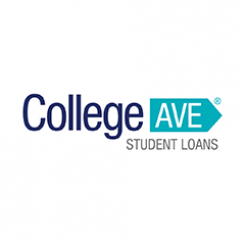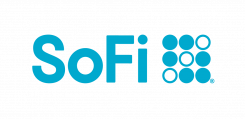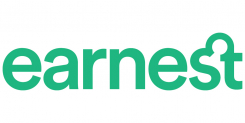- Rates start as low as 2.89% APR
- 5- to 15-year loan terms available
- No application or origination fees
- Fixed APR from 2.89%
- Four repayment plan options
- Cosigner release after 12 months
3
- Competitive interest rates overall
- Autopay discount available
- No application or origination fees
4
- Low fixed rates starting ~5.17%
- No origination, late, or prepay fees
- 9-month grace period after school
- Covers 100% of certified costs
- Rate discounts: loyalty + autopay
- Multiple options for repayment term lengths
Features and Benefits
- Best Overall: Citizens Bank »
- Best for Lowest Fixed Rates: College Ave »
- Best for Flexible Repayment Terms: Earnest »
- Best for Multi-Year Loan Approval: Sallie Mae »
- Best for Cosigner Release Options: SoFi »
- Best for International or DACA Students: Citizens Bank »
- Best for Strong Credit Borrowers: College Ave »
- Best for Graduate Students: Earnest »
- Best for Undergraduate Borrowers: Citizens Bank »
Frequently Asked Questions
Question:
What is a private student loan and how is it different from a federal loan?
Answer:
A private student loan is issued by a bank, credit union, or financial institution (not the federal government). Unlike federal loans, private ones rely heavily on creditworthiness (and often a cosigner) for approval and rate determination. They tend not to offer the same broad borrower protections—such as income-driven repayment, forgiveness, or generous forbearance programs—that many federal loans do. Interest usually accrues immediately (even during school) unless you pay it, and the terms, fees, and flexibility vary by lender. Use these loans cautiously and compare features carefully.
Ask an expert: Citizens Bank »
Question:
Who is eligible to apply for a private student loan?
Answer:
Eligibility typically requires enrollment in an accredited institution (often at least half-time), a U.S. citizen or qualifying resident status (though some lenders may allow DACA or international students with a U.S. cosigner), and a credit profile or the backing of a cosigner. Some lenders also review your income, debt-to-income ratio, enrollment status, and prior credit history. Lenders may also limit eligibility for certain programs (undergraduate vs. graduate) or require additional documentation.
Ask an expert: College Ave »
Question:
Do I need a cosigner to qualify?
Answer:
Many students, especially undergraduates or those with limited credit history—do need a cosigner to qualify or to secure favorable interest rates. A cosigner (often a parent or trusted adult) shares legal responsibility for repayment. Over time, some lenders offer cosigner release if the student meets certain payment, credit, or income milestones. But not every loan or lender allows it, and approval is not automatic.
Ask an expert: Earnest »
Question:
How much can I borrow?
Answer:
Many private student loans allow you to borrow up to 100% of your school-certified cost of attendance, which includes tuition, fees, books, room & board, and other school-related expenses. Some lenders permit “overage” (extra funds) for living costs or personal use, but others strictly limit borrowing to educational costs. The maximum amount often depends on your status (undergrad vs graduate), school, and lender policies.
Ask an expert: Sallie Mae »
Question:
Are there any hidden or extra fees I should watch for?
Answer:
While many private lenders advertise “no origination fees,” you should still watch for possible costs such as late-payment fees, returned-payment charges, or administrative penalties. Interest capitalization (unpaid interest added to principal) can also act like a hidden cost. Always review the full disclosure documents before you accept: fees, interest compounding, penalties, and how missed payments are handled can vary widely among lenders.
Ask an expert: Citizens Bank »
Question:
Can I refinance or consolidate later?
Answer:
Yes, many borrowers refinance their private student loans later to secure lower rates or more favorable terms. But refinancing typically means replacing your original loan with a new one—potentially losing some benefits (like cosigner release or flexible terms) tied to your original loan. Also, you generally can’t refinance back into a federal loan. Always compare the cost advantages and trade-offs before refinancing.
Ask an expert: College Ave »
Question:
Are there penalties for paying off my loan early?
Answer:
No, private student loans legally cannot charge a prepayment penalty. You may pay extra or finish early without being penalized. That said, prepaying reduces the total interest you pay over time. Just confirm with your lender that “prepayment” is allowed without fees. It’s a helpful feature to pay more when possible.
Ask an expert: Earnest »
Question:
Cosigner release allows the original cosigner to be removed from liability once you meet certain criteria (such as making a specified number of consecutive on-time payments, achieving a minimum credit score or income level, and demonstrating financial stability). Not all loans offer this. Lenders will reassess your credit independently, and there’s no guarantee they’ll approve the release. Always review your loan agreement to see if your lender supports cosigner release.
Answer:
Cosigner release allows the original cosigner to be removed from liability once you meet certain criteria (such as making a specified number of consecutive on-time payments, achieving a minimum credit score or income level, and demonstrating financial stability). Not all loans offer this. Lenders will reassess your credit independently, and there’s no guarantee they’ll approve the release. Always review your loan agreement to see if your lender supports cosigner release.
Ask an expert: Sallie Mae »
Question:
Can I apply to multiple lenders to compare rates?
Answer:
Yes, many platforms allow multiple soft credit pulls (which don’t hurt your credit) so you can compare rates, terms, and fees before selecting a lender. This lets you see potential offers side by side. It’s smart to get multiple quotes because each lender weighs credit, cosigner strength, income, and program differently.
Ask an expert: Citizens Bank »




